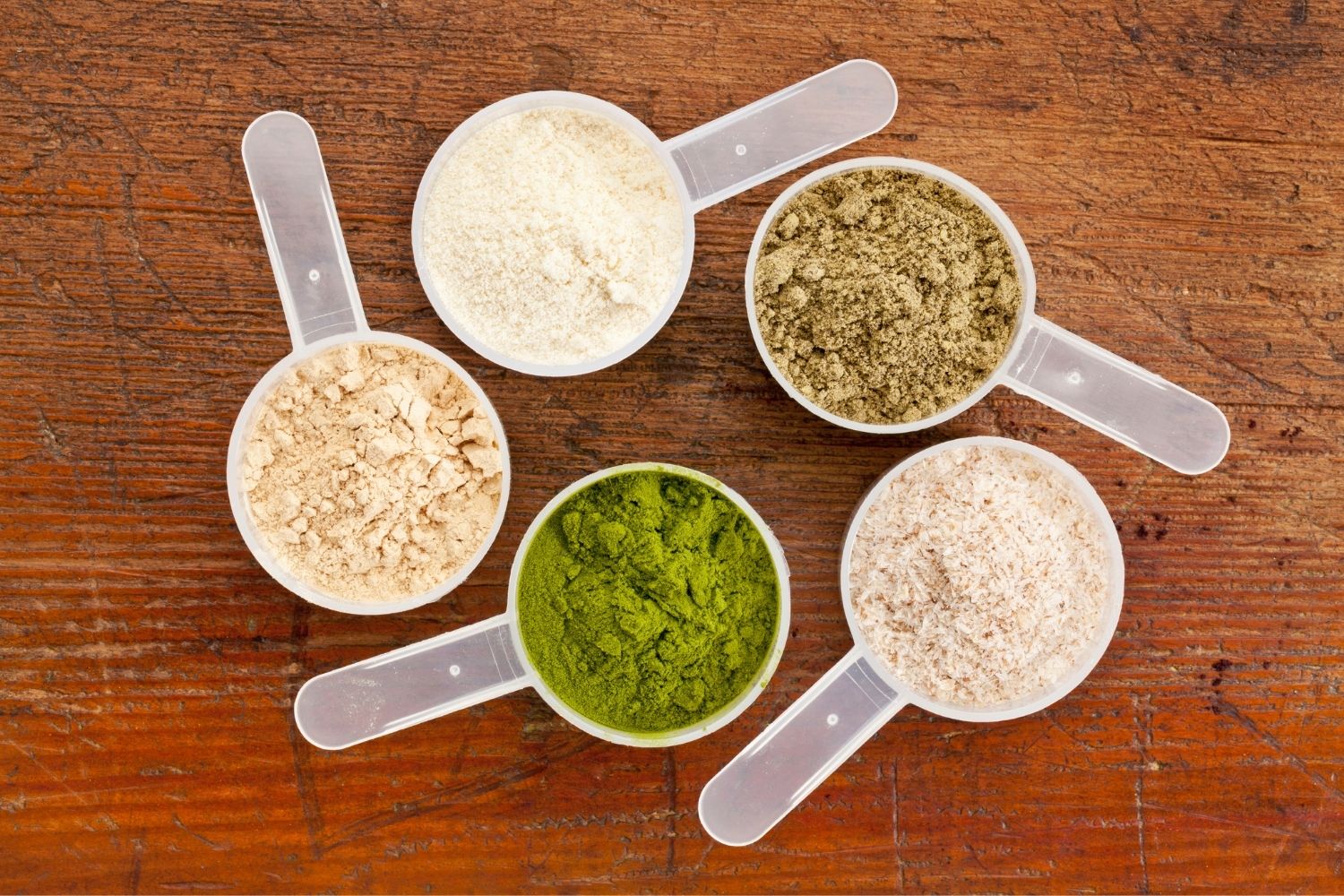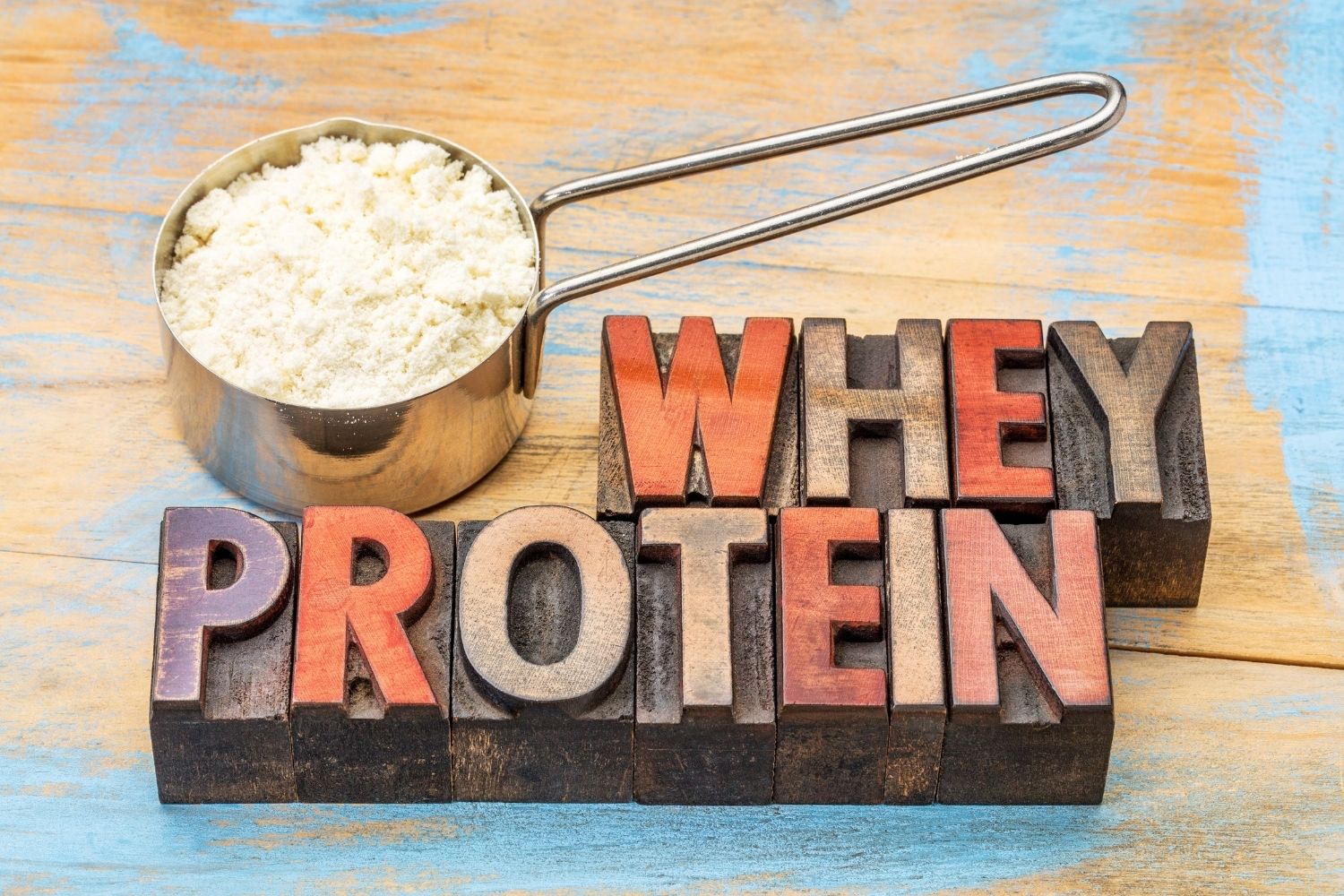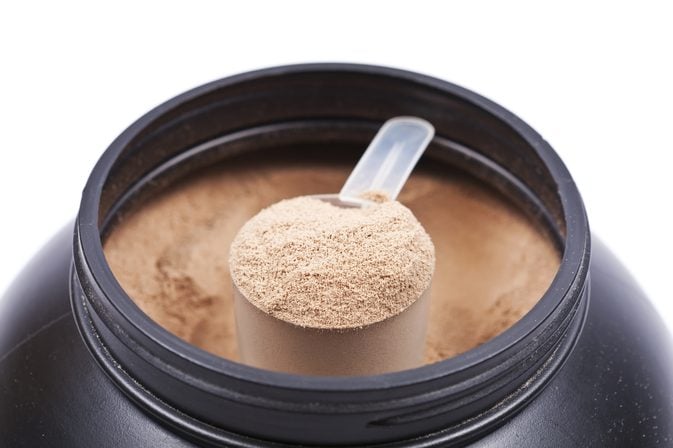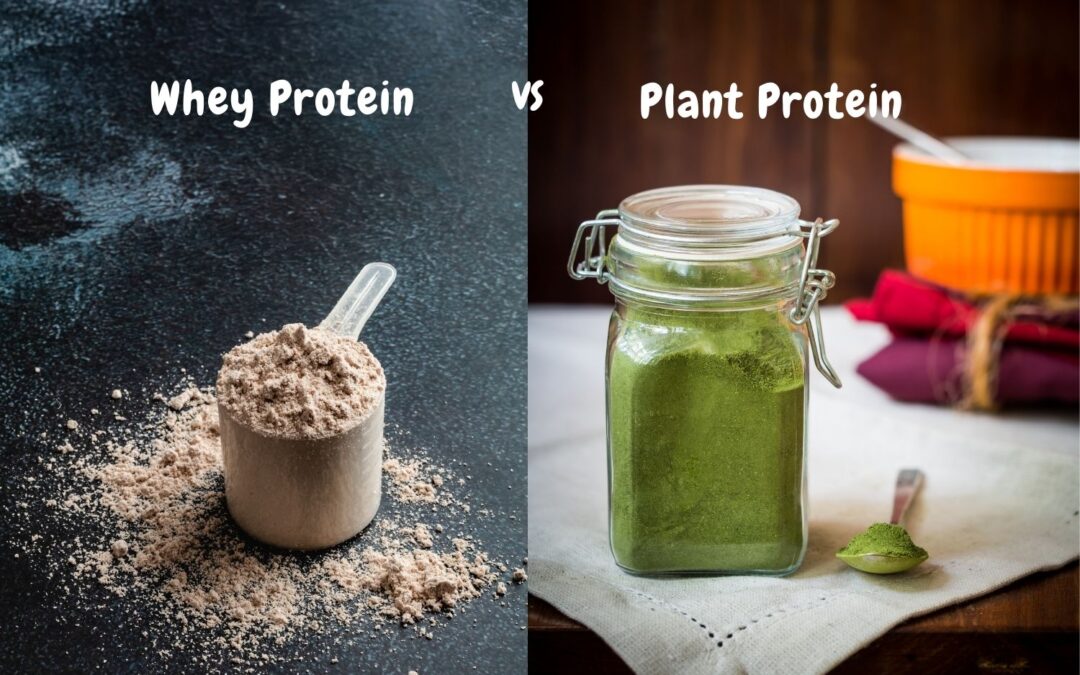As we undergo a health revolution and fitness awareness movement, we find a lot of products promising health and wellness. However, it is extremely important to know what exactly you are being fed in the name of health. Since we are talking about health, how can we leave protein behind? Protein is important for our cell regeneration, growth and development. It is essential for the body’s overall health, but many of us are not able to add enough amounts of protein to our diets. Our fast-paced lifestyle acts as a barrier to having a healthy balanced diet daily. This whole situation gave birth to the biggest boon of the healthcare industry; protein supplements!

The market is filled with healthy substitutes that take care of your body’s protein needs. We have protein shakes, protein powders and protein bars to start with. There are so many alternatives and each claiming to be superior to the other. Therefore it becomes essential to compare, analyse and then find the one that supports your body needs and health goals. In the recent addition to this health movement, whey protein and plant protein are the latest additions. The whole market is flooding with proving one superior to the other while the public remains unaware of the truth behind both! That is why we at Organic Tasteful decided to curate this article for you to understand the whole protein debate.
Here, we will talk about both whey and plant protein in detail and understand the difference. We will also help you pick the protein that will work best for you, your lifestyle and your body needs. This article is going to change your perception of health, fitness, protein and nutrition. Happy Reading!
Try our antioxidant-rich Butterfly Pea Tea now!
What is Whey Protein?

Whey is a dairy product. Milk is made of two proteins, casein and whey. Whey protein can be separated from the casein in milk or formed as a by-product of cheese making. Whey protein is considered a complete protein as it contains all 9 essential amino acids. The liquid left after the milk has been curdled and strained is called whey. Whey protein is a byproduct of cheese or cottage cheese production.
Even though it is a dairy product, the whey protein is low in lactose content. It consists of α-lactalbumin, β-lactoglobulin, serum albumin and immunoglobulins. Whey protein is marketed as a health supplement and good food for muscle growth. It is commonly used as a thickener to improve the texture and decrease syneresis in yoghurt. It has been popularized in the health industry due to its large availability and ease of production. The worldwide whey protein market was valued at USD 9.4 billion in 2020.
People who are into gymming and bodybuilding opt for whey protein because it aids in both muscle growth and weight loss. Whey protein is also beneficial in lowering cholesterol. With so many claims and popularity, whey protein is a leading protein supplement in the market. However, you will be surprised to know that the European Food Safety Authority (EFSA) rejected half of the claimed whey protein benefits as there are not enough references supporting the medicinal claims. The only claim that was approved by EFSA was muscle growth.
Try our newly launched, Chamomile Minty tea now!
Whey Protein Benefits
Now that we know what exactly whey protein is and how it is sourced, let’s learn about its health benefits. Being aware of the whey protein benefits will help you compare it with the other alternatives and choose the one that suits best with your goals!

Take a sip of OTF Chamomile Tea to fix your sleep cycle now!
● Whey Protein for Weight Loss
In recent research done by NCBI, it was found that the people consuming whey protein on a daily basis along with their workout and diet plan were able to lose weight more easily and faster than the ones who were just exercising. The whey protein promotes feelings of fullness and preserves muscle mass. Intake of whey protein helps you consume fewer calories in a day and keeps you energised.

Try the special OTF Chamomile rose tea combination now!
● Whey Protein Lowers Cholesterol
As per the latest findings and research of the British Journal of Nutrition, whey protein is capable of efficiently lowering cholesterol and fat levels in the body. It prevents the blockage of blood vessel walls due to the collection of LDL cholesterols. Excessive bad cholesterol collection may result in heart problems.

Say hello to a healthy Binge watch with OTF Nutberryeeds!
● Whey Protein Reduces Blood Pressure
The whey protein supplements are found to lower blood pressure levels and aid in hypertension and stress problems in adults. The regulated whey protein consumption may lower the chances of developing cardiovascular diseases.

Drink OTF Hibiscus Tea and say bye to blood pressure problems!
Whey Protein Possible Side Effects
As you know excess of anything is bad therefore, whey protein overconsumption may result in health dangers and side effects. It is very important to take protein supplements in the right amounts with the right consultation. Here are some of the possible whey protein side effects, that you should take note of:
- Digestive Issues
- Nausea
- Stomach Cramps
- Reduced Appetite
- Fatigue
- Headache
- Acne
Take a sip of our ayurvedic Pitta Dosha Tea now!
Now that we have discussed it all about whey protein, let’s move towards understanding plant protein. Here we talk about what plant protein is, discuss its benefits and side effects. Continue scrolling to read!
Take a sip of our cooling spearmint tea now!
What is Plant Protein?

As we are evolving more ethically conscious, we tend to make choices that are healthy for both us and the planet. Popularity of plant protein and vegan diets is one such example. Plant protein is extracted from plants as a meaningful, healthy and energising food source. Plant protein is generally sourced from pulses, tofu, soya, nuts, seeds, certain grains etc.
As mentioned above, plant-based protein powders are derived from various types of plants. However, vegan protein supplements are made mostly from a combination of plants to give you all kinds of proteins. The plant-based proteins are healthier for vegans and a better alternative if you are lactose intolerant.
Vegan or plant based proteins are approved as a good source of energy by the FDA. Plant proteins are highly nutritious and rich in other nutrients like fibre, vitamins and minerals. If you are looking for a sustainable diet option or planning to follow veganism, plant protein supplements may be a right place to begin with!

Take a sip of our ayurvedic Kapha Dosha Tea now!
Plant Protein Benefits
● Plant Protein Prevents Diabetes

The plant protein provides protection against type 2 diabetes. It has been found in various researches that people who follow plant based diets have lower levels of type 2 diabetes than people consuming animal protein. Plant based food enhances insulin sensitivity if taken regularly in the right amounts.
● Plant Protein Prevents Heart Diseases

A healthy plant-based diet may decrease the risk of having a stroke. Plant-based diets are lower in saturated fats, iron, and hormones. A healthy diet consists of lots of leafy greens, whole grains, and beans, and few refined grains and added sugars. Along with a healthy diet, one should also add physical exercise in their routine to reduce the chances of heart diseases.
● Plant Protein Promotes Weight Loss

The protein-rich plant-based diet gives your stomach a sensation of fulfilment and keeps you satiated for longer hours of time. This results in less calorie intake. Since plant proteins are tummy-filling, it also helps in reducing junk food cravings. Vegan protein sources have been shown to have a higher thermic effect which boosts the number of calories burned in a day.
Take a sip of our ayurvedic Vata Dosha Tea now!
Plant Protein Possible Side Effects
As the plant based protein supplements are sourced from suitable to eat greens, people often tend to neglect its potential side effects and health dangers. Therefore, it is important to know what you eat and eat it in the right amounts with the right consultation. Some of the possible plant protein side effects are as follows:
Sip the OTF Rose Tea for glowing skin
- Many plant protein foods are processed using hexane to remove oil from plants. The chemical could damage your central nervous system. Hence, it is advisable to choose a product that is free from artificial processing.
- Companies often use harmful pesticides and herbicides to grow plants for mass production. Thus, it is important for you to consume an organically produced plant-based diet.
- Most dairy-free protein supplements are made using high temperature processing methods, which destroys the healthy nutrients in the plants. Therefore, it is advisable to prefer handcrafted and ethically produced foods.
- Plant protein powders are higher in heavy metals like lead, cadmium, and arsenic than dairy-based proteins.
Try our PM Sip Tea to get rid of nasty menstrual problems!
Whey Protein VS Plant Protein: A Healthy Debate
Now that we are aware of both whey and plant protein, their benefits and their side effects let us do a quick comparison to help you decide your diet. This health chart will help you understand the difference, pros and cons of both kinds of proteins briefly.
| Comparison Property | Whey Protein | Plant Protein |
| Lactose-Free | NO | YES |
| Vegan | NO | YES |
| Complete Protein | YES | YES |
| Meal Replacement | NO, but tummy-filing | NO, but tummy-filing |
| Promotes Weight Loss | YES | YES |
| Aids Muscle Growth | YES | YES |
| Market Availability | Easily Available | Easily Available |
| Cost | Brand Specific | Brand Specific |
Boost your energy levels with OTF Protein Bars now!
We at Organic Tasteful care about you, your health and nutrition therefore, this article is curated to help you eat better. Eat all you want but make sure it is good for your gut, heart and health! For more such health recommendations, read the OTF blogs regularly. Also try our range of healthy and delicious floral teas, ayurvedic teas, protein bars, healthy snacks, superfoods and more.
Written By,
Abhilasha Chauhan


Wonderfully explained!!
Thank you So much.
It was very informative.Thankyou so much 🙃